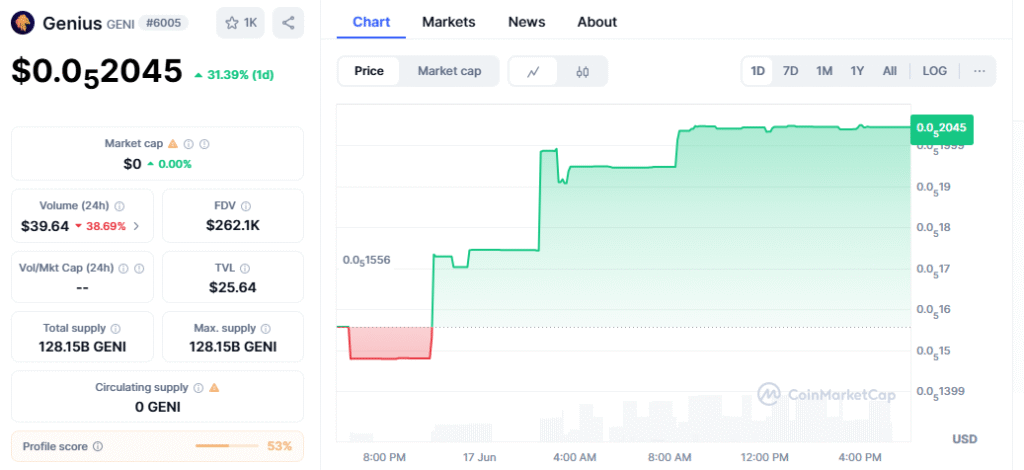- The U.S. Senate is set to vote on the GENIUS Act, a bill aiming to regulate stablecoins and promote innovation in digital payments.
- Meanwhile, JP Morgan has filed a trademark for its own stablecoin, “JPMD,” signaling increased competition in the rapidly growing stablecoin market.
A major shift in U.S. digital finance could be underway as the GENIUS Act — a landmark bill to regulate stablecoins — reaches the Senate floor for final voting, while Wall Street giant JP Morgan positions itself for entry into the stablecoin space with a new trademark filing.

The Guiding and Establishing National Innovation for U.S. Stablecoins (GENIUS) Act is expected to be voted on in the Senate today. If passed, the bill will head to the House of Representatives, then to the President for final approval. Designed to provide a robust regulatory framework for “payment stablecoins,” the legislation aims to promote innovation while safeguarding consumer interests.
Also read: ONDO Whale Sells 2.69 Million Tokens Amid 11% Price Drop – Is a Bigger Crash Coming?
Senator Bill Hagerty, the bill’s sponsor, called the legislation “a historic step forward” that will bring America’s payment system “into the 21st century.”
Key amendments to the bill focus on consumer protections, bankruptcy protocols, and ethical standards. Market analysts expect Ethereum (ETH) — which hosts over half of the $250 billion stablecoin supply — to benefit from any formalization of stablecoin rules.
“Most people still don’t even know what ether is,” noted Nate Geraci of ETF Store, highlighting how early it still is for investors and institutions entering the space.
Meanwhile, JP Morgan Chase has filed a trademark for “JPMD,” a clear signal of its intention to launch a stablecoin product. The move places the bank in direct competition with current leaders Tether (USDT) and Circle (USDC), which command market caps of $155 billion and $61 billion respectively, according to DeFiLlama.
Circle’s recent IPO success — with CRCL shares soaring over 400% since launch — has only intensified interest in the sector. Traditional financial institutions appear eager to grab a share of the booming stablecoin market, which is expanding rapidly both in the U.S. and globally.
But not all industry voices are convinced. BitMEX founder Arthur Hayes warned that the CRCL hype could be premature, suggesting the current mania may peak once traditional players like JP Morgan formally launch their offerings.
Still, if the GENIUS Act passes, it could set the stage for a new chapter in U.S. financial innovation — one where digital dollars become as commonplace as paper ones, and where banks, crypto firms, and regulators finally find common ground.



